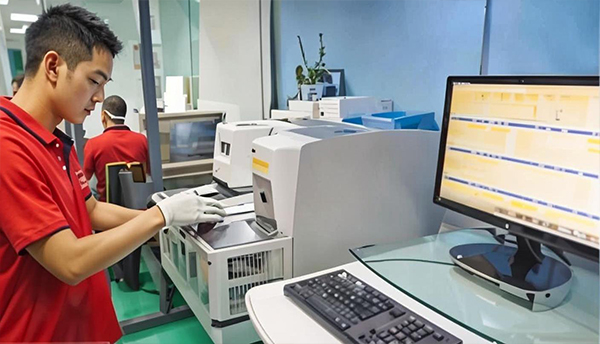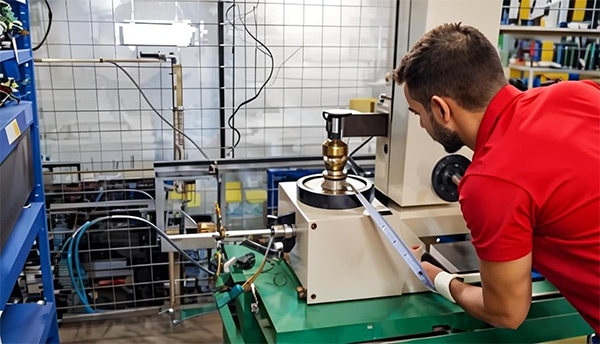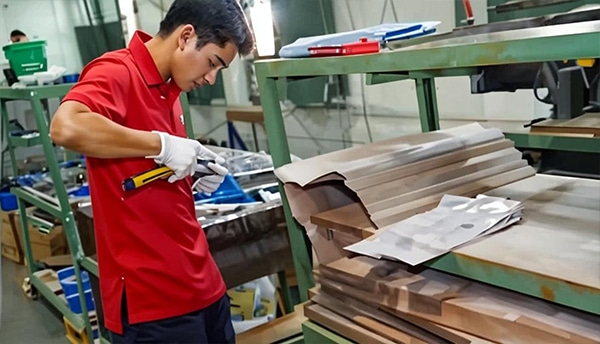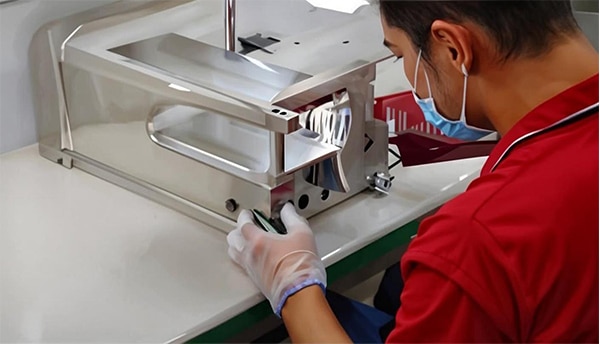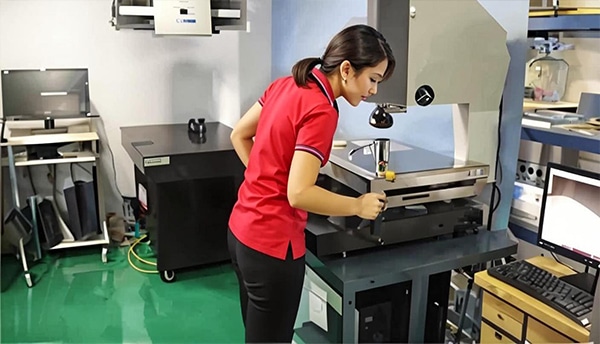Introduction to Oil-Injected Stainless Steel Processing
Oil-injected stainless steel is an advanced material that combines the favorable characteristics of stainless steel with enhanced performance through oil-infused processes. Stainless steel, celebrated for its corrosion resistance, durability, and aesthetic appeal, is often the material of choice in various industrial applications. Its inherent properties make it suitable for environments where hygiene, strength, and longevity are paramount, especially in industries like food processing, pharmaceuticals, and automotive manufacturing.
The process of oil injection involves infusing the stainless steel with specific oils during manufacturing to improve its surface properties. This technique significantly increases the material’s resistance to wear and tear, particularly under extreme operating conditions. By creating a protective layer, oil injection helps to minimize friction and abrasion, which can be critical in high-speed and high-load applications. As a result, components made with oil-injected stainless steel demonstrate superior longevity and reduced maintenance costs compared to their unprocessed counterparts.
Furthermore, the incorporation of oil into the stainless steel matrix also enhances its overall mechanical performance. The presence of oil reduces the risk of galling, a phenomenon characterized by adhesive wear that can lead to significant material failure. This makes oil-injected stainless steel particularly advantageous in applications that demand precision and durability, such as in CNC laser stamping and bending processes. These processes allow manufacturers to produce custom shapes and components with high accuracy and repeatability, catering to the specific requirements of their clients.
As industries continue to seek advanced materials that offer both performance and economic benefits, oil-injected stainless steel presents itself as a viable solution. The combination of stainless steel’s natural properties with oil injection technology not only enhances product longevity but also underscores its relevance in modern manufacturing practices.
Understanding CNC Laser Stamping: Techniques and Advantages
CNC laser stamping has emerged as a leading technology in the fabrication of stainless steel components, offering unparalleled precision and accuracy. This technique involves utilizing a computer numerical control (CNC) system to operate a high-powered laser that cuts, engraves, or shapes stainless steel materials. The laser spot can be finely tuned, allowing it to manipulate a variety of thicknesses and grades of stainless steel with minimal distortion. This level of control is particularly beneficial when working with oil-injected stainless steel, which often requires meticulous handling to maintain its integrity and performance characteristics.
The process of CNC laser stamping involves several key techniques. Initially, a detailed digital design is created or provided, which the CNC system uses as a blueprint. Then, the laser is meticulously guided to follow the design, cutting through the stainless steel with precision. The use of a laser not only reduces the physical contact with the material but also minimizes the heat affected zone, conserving the quality of the stainless steel. This method proves advantageous in producing intricate designs that traditional stamping methods may struggle to achieve.
One of the primary advantages of CNC laser stamping is the significant reduction in material waste. Unlike conventional methods that may require excessive trimming, the laser’s precision allows for cleaner cuts that optimize material usage. Additionally, the faster production times associated with this technology enable businesses to meet tight deadlines without compromising quality. As a result, companies can achieve a higher throughput, which further enhances efficiency. Furthermore, the flexibility offered by CNC laser systems permits the execution of various applications; from decorative items to functional components in industrial settings, the versatility of CNC laser stamping continues to drive its popularity in the manufacturing landscape.
Bending Processes for Stainless Steel: A Closer Look
Bending stainless steel involves various techniques tailored to meet specific design and production requirements. In the context of oil-injected stainless steel, the bending processes optimize both tooling life and surface finish. Two commonly utilized bending methods include air bending and bottoming, each offering distinct advantages for different applications.
Air bending involves lifting the stainless steel sheet into the die, allowing it to deform at a predetermined angle without complete contact with the die. This method is characterized by flexibility, enabling the generation of acute angles and complex geometries. Air bending is particularly beneficial in scenarios requiring rapid production runs, as it reduces setup time while maintaining overall accuracy. However, this method requires careful calibration to achieve the desired bend radius, which can vary due to material properties and thickness.
Conversely, bottoming is a process where the stainless steel is pressed down into the die, ensuring full contact between the sheet and the die. This technique provides higher precision for less acute angles, guaranteeing a tighter bend radius and enhanced repeatability. Bottoming is ideal for projects demanding consistent and uniform bends, making it a preferred choice for intricate designs frequently found in custom stainless steel applications.
The integration of CNC technology into the bending processes significantly enhances performance. CNC-controlled bending machines ensure exact angles and allow for programmable sequences that maintain high tolerances throughout the production run. This capability reduces human error and promotes efficiency, particularly when executing complex geometries or repetitive designs.
Case studies demonstrate the effectiveness of these methodologies; for instance, manufacturers adopting CNC air bending techniques reported a substantial increase in production efficiency while achieving higher quality standards. The combination of oil-injected bending methods and CNC precision presents a compelling approach to stainless steel fabrication, ultimately supporting the evolving demands within various industries.
Customization Services: Tailoring Solutions to Specific Needs
In the realm of oil-injected stainless steel components, customization services play a crucial role in meeting the diverse needs of businesses across various industries. Manufacturers offer tailored solutions that empower clients to request specific designs or modifications, ensuring that the final products align with their operational requirements. This bespoke approach to CNC laser stamping and bending is pivotal for organizations looking to enhance their operational efficiency and product performance.
The customization process often begins with a detailed consultation between the service provider and the client. During these discussions, businesses can articulate their precise needs, desired specifications, and any particular challenges they face. The adaptability of service providers enables them to undertake complex requirements, whether it involves adjusting dimensions, incorporating unique features, or applying specialized finishes. With advanced technology, manufacturers can facilitate rapid prototyping, which allows clients to visualize and assess their designs before full-scale production begins.
In many successful projects, a collaborative iterative design process has proven to be beneficial. This ensures that multiple rounds of feedback are incorporated, fostering a comprehensive understanding of the client’s requirements throughout the development phase. For instance, a company in the automotive sector may seek customized oil-injected stainless steel parts for lightweighting efforts. Through close collaboration and effective communication, service providers can deliver components that not only meet industry standards but also fulfill specific performance metrics laid out by their clients.
Real-world applications underscore the importance of these customization services. From intricate patterns required for household appliances to robust designs necessary for industrial use, the scope of customization is vast. With an emphasis on flexibility and client satisfaction, service providers in the oil-injected stainless steel market can ensure that they not only meet but exceed customer expectations by delivering precisely tailored solutions.
Quality Assurance and Industry Standards in Stainless Steel Fabrication
Quality assurance plays a pivotal role in the stainless steel fabrication sector, particularly in processes such as CNC laser stamping and bending. To maintain high-quality outcomes, service providers must adhere to stringent industry standards, which not only enhance the reliability of the manufactured components but also ensure compliance with safety and durability requirements. Various certifications, such as ISO 9001, emphasize the importance of quality management systems within the manufacturing process, mandating ongoing evaluation and improvement of fabrication practices.
Implementing robust quality control measures is essential to uphold these standards during the CNC processes. This includes conducting routine inspections, utilizing advanced measurement technologies, and adopting automated quality checks throughout production. Such measures help in identifying and rectifying potential defects early in the fabrication process, ultimately leading to superior finished products. Additionally, adherence to industry regulations, such as ASTM specifications, ensures that the material properties and production techniques meet the necessary performance criteria.
The significance of maintaining high fabrication standards is particularly evident in applications where safety and performance are critical, such as automotive, aerospace, and medical equipment manufacturing. Oil-injected stainless steel, known for its corrosion resistance and strength, serves diverse applications wherein failure could lead to catastrophic outcomes. Hence, service providers must prioritize quality assurance to guarantee the integrity and longevity of the components produced.
By emphasizing industry standards and quality control in the CNC laser stamping and bending of oil-injected stainless steel, manufacturers not only enhance their reputation but also cultivate customer trust. The commitment to excellence in fabrication not only aligns with regulatory demands but also elevates industry best practices, ultimately driving innovation and competitiveness in the market.




